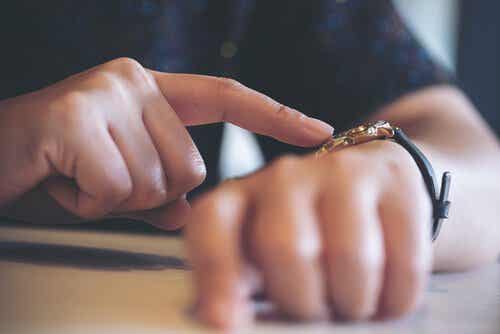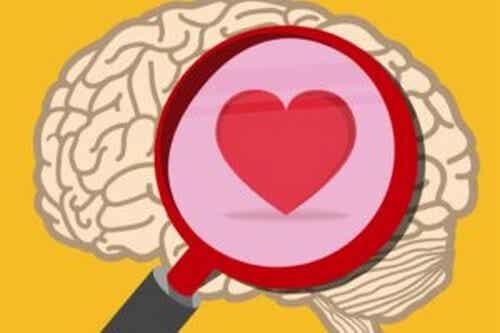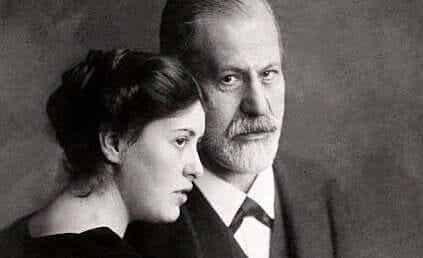Under what conditions is anxiety more likely to paralyze us? What can we do when we find ourselves in such a vulnerable situation? We answer these and other questions.

Last update: June 22, 2022
Panicking before an exam, a job interview or while being the victim of a robbery are not remote possibilities if we take into account the activity of our cognitive system. Anxiety is a natural and universal defense mechanism that usually allows us to react adaptively when we perceive a threat that compromises our integrity. The paralyzing anxiety, however, loses this useful function.
The purpose of anxiety is to mobilize the body and keep it alert to function in a functional way. Very simply, Aaron Beck, the referent of cognitive psychology, describes it as a fear reaction. But what happens when it exceeds certain limits?
In this case, it can stop performing its adaptive function and have dysfunctional effects on the body and mind. L'anxiety can physically paralyze, cognitively and emotionally if tested at high levels.
When anxiety blocks
Mental block is one of the most frequent symptoms of excessive anxiety and can manifest itself in the most varied contexts: at work, at university, with friends and even during a date. It is frustrating to notice that the mind has become empty and that we are unable to think, speak or act as usual.
Intrusive thoughts often appear in these moments and complicate everything. "What happens to me?", "I have forgotten everything I have studied, I am a disaster", "I can not concentrate". These feed and increase anxiety, making us feel like we are in a dead end, unable to find solutions to the problem.
In these cases, we feel unable to think clearly, organize thoughts, draw conclusions or make decisions. In turn, the mental block can be accompanied by bodily symptoms and sensations, such as the sensation of being immobilized.
Adaptive anxiety predisposes you to take quick action to get away from danger. When we are paralyzed, however, we cannot speak in public, we have difficulty acquiring and memorizing new information or we are unable to escape if an animal is chasing us. It is in these contexts that, unfortunately, the solutions to the problem do not reveal themselves.
How to deal with paralyzing anxiety
It's unpleasant to feel stuck: the lack of a sense of control can be very frustrating. Moreover, it usually negatively affects the different areas of life, from studies and work to loved ones.
When this sensation occurs frequently, the body and mind try to send us a message: it is worth listening to. He wants to warn us that we are going too fast, that we are not doing what we really want, that we feel intense pressure on us and that it's time to start taking action and making decisions based on what we want and need.
In this sense, it may be useful to ask yourself the following questions: What activities do I not want to engage in? At what point did I stop feeling authentic? What needs do I need to free myself from? What emotions do I not allow myself to express? Am I living as I would like? What aspects of my life would I like to change?
Once we find out what anxiety is telling us and make the necessary changes, we can counter it. You can learn to manage anxiety with dedication, patience, and professional and specialized support.
Specific treatment for paralyzing anxiety
Acceptance and commitment therapy is considered one of the best options to deal with this problem. It helps to identify and overcome the blocks caused by anxiety by accepting emotions without resisting them. In short, it is about acquiring tools to cope with anxiety and improve well-being.
In addition to psychological treatment, it is possible to acquire some habits such as connecting with breathing, engaging in mindfulness, yoga or sports, taking breaks, maintaining a healthy diet and identifying thoughts and emotions.


























